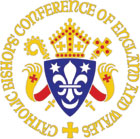To you, Families, I repeat: Be not afraid! The Lord is calling you to become leaders of a new season of hope in the Christian community and the world.
Family ministry is a relatively new form of ministry which encompasses a range of activities geared towards families at every stage of their life together, in order to strengthen the love between them, their relationship with God and their service to the wider community. It was first defined in 1980 by the bishops attending the Synod of Family, who wrote that 'Family ministry is of very special interest to the church. By this we mean efforts made by the whole people of God through local communities, especially through the help of pastors and lay people devoted to pastoral work with families.' Parish family ministry initiatives continue to bear witness to the critical importance of healthy family life for people, for families, for society and for the Church, for personal, spiritual, social and faith development. The role of a Diocesan Coordinator of Family Ministry was formally recognized by the Bishops’ Conference in 1993. The role embodies two key principles:
- Families themselves are the most effective means of providing pastoral support for one another, so encouraging, enabling and equipping families is paramount. Diocesan Coordinators are heavily involved in training and adult formation.
- A range of church ministries, organisations, agencies and pastors also all minister in a variety of ways to families’ needs and therefore coordination is key to effectively connecting needs and services. Diocesan Coordinators are heavily involved in networking and relationship building.
The Church's family ministry includes:
- Enabling family members to deepen their relationships with each other and to appreciate the significance of these relationships for their faith journey and their relationship with God
- Creating opportunities for families to develop supportive friendships within the parish and access peer support
- Affirming the spirituality of family life, and the richness of the ways in which families reconcile the demands of living faithfully in the world
- Ensuring that the graces and blessings of family life are formally celebrated and that the sorrows and heartaches are sensitively attended
- Providing counselling and helpline services and developing structures of peer support
- Safeguarding the vulnerable, especially victims of domestic abuse, so that no further harm ensues
- Responding to enquiries, sharing information about available resources, signposting people to sources of additional support
- Articulating the vocation of the Christian family in all its dimensions in family-friendly language
- Encouraging families with particular gifts to offer them in service
- Listening actively to discern unmet needs and working collaboratively with families to find practical, doable ways of responding
Diocesan Coordinators of Family Ministry also work with three main principles in mind:
- Acceptance: listening, welcoming, befriending families
- Celebration: liturgically and socially, within and beyond the home, community building
- Support: making preventive care available as well as directing to ‘crunch time’ resources


